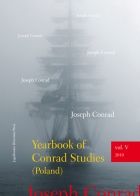
Keywords: Apollo Nałęcz-Korzeniowski; JosephConrad
This article shows that Apollo Korzeniowski practised what he preached by writing plays of a mixed emotional tonality that ranged from lyricism to bitter sarcasm. Unfortunately his poetry and plays were soon forgotten after his death and for almost a century he was remembered chiefly as Conrad’s father and as yet another victim of tsarist repression (in 1861 he and his wife were sentenced to a term of exile in northern Russia for their involvement in Polish patriotic activities). Apollo Nałęcz-Korzeniowski wrote several highly distinctive comedies of manners which are a scathing critique of the vices of a large section of the Polish nobility of his day – in particular their failure to live up to the ethos of chivalry, their selfi shness, their hypocrisy and their greed. His plays (some of which were never fi nished) display elements of tragicomedy, satire, realism and naturalism and some of them were conceived as pièces à thèse.
More...The author will try to analyse, what he believes, constitute two self-delusions of the great majority of Western Intellectuals and opinion-leaders – he is referring more specifically to that ever-widening section of experts and professional intellectuals organically linked with the state, the media and international organizations. First major Delusion among many European Intellectuals, sincere, honest and not associated with specific interests-state, media or military industrial: they took for granted NATO declarations and rhetoric, as if they reflected their own way and structure of thinking on Human Rights, as if they reflected their own concerns (or even agony) for the perpetrated ethnic cleansing in Kosovo- Those intellectuals faced, therefore, NATO political and military leaders as if they were themselves thinking in identical terms with their own assumed clear rationality springing from the application of "pure reason". They were thus, led to support the decision by NATO to use military means succumbing unconsciously to what Immanuel Wallerstein some years ago termed "the hypocrisy of American Kantianism". The second collective self-delusion- of most European intellectuals and a much graver than the first one, is that they came to unconditionally believe that the violation of Human rights (Ethnic cleansing) in Kosovo constituted in reality if not the sole, certainly the most important cause of the military "intervention". Main parts of the study are: [A] Nationalism and ethnic cleansing in Yugoslavia [B] NATO declarative rhetorics [C] The legitimating argumentation for military intervention, or the lack of it [D] Western entanglement in Yugoslavia: from indifference to polarization and war [E] Determining conjectural, political and economic factors like additional keys for an interpretation [F] Kosovo war perspectives on "democracy", "autonomy" and "civil society" (east and west).
More...Keywords: Magrebin literature in French; literary plurilingualism;« phantom language »
Assia Djebar and Leïla Sebbar re-inscribe the sounds of the „other” languages (Tamazight / Berber, spoken Arabic, classic Arabic), which are spoken in Algeria, in their French language. The „other” languages are the „phantom languages” which „haunt” the writers, who do not speak all of them, but who appreciate their sounds and their imagery. So Assia Djebar doesn’t speak Berber, and Leïla Sebbar doesn’t speak Arabic. Rhythmical effects, mimicking Arabic rhythms, are achieved by „breaking” the French syntax, by the frequent use of Arabic imagery, as well as by the incessant use of alliteration and assonance. Their French is a „torn language” („langue brisée”), a term invented by Régine Robin (2003) who examined the multilingualism of Jewish writers. For Assia Djebar, Tamazight (Berber) is the lost mother tongue, because her mother wasn’t able, after the divorce of their parents and after the sudden death of her cherished sister Chérifa, to speak this language anymore. Tamazight „haunts” Assia Djebar who doesn’t speak this language, but who appreciates its sounds, its music, its force, and especially in her work Vaste est la prison, she tries to understand her mother and her grand-mother, as well as she tries to understand the Berber history of her country. For Assia Djebar, the classic Arabic is the language of the Noubas, the Andalusian music, of the Arabic poets, and in her work Loin de Médine (1991) she shows that women played an important role in the Islamic history. For Leïla Sebbar, the Arabic language is a beautiful „phantom language” (and it is important to say that she refuses to learn this language, because she needs its „holy force” (L. Sebbar), otherwise writing wouldn’t be possible anymore), but it is also a brutal language. The spoken Arabic language is Assia Djebar’s mother tongue, while French is the language of the French school and of her father, the French teacher, who permitted her to go to school and to study at the university in Alger. But it is also the language of the colonial fathers who, for 132 years, oppressed the Algerian people. French is the only language that Leïla Sebbar speaks, it is her mother tongue, but although she writes in French, she says that she writes an „Arabic French”, a „torn” French. She regrets that her father, who gave her the French language and the literature, didn’t give her also the Arabic language, because he wanted to protect his children against war and death.
More...Carsten Peter THIEDE, Paulus. Schwert des Glaubens - Märtyrer Christi, Augsburg, 2004 (Ilaria Ramelli); G. R. EVANS (ed.), The First Christian Theologians. An Introduction to Theology in the Early Church, Oxford, 2004 (Mihail Neamtu); Anthony CORBEILL, Nature Embodied. Gesture in Ancient Rome, Princeton: Princeton University Press, 2004 (Gabriela Cursaru) ; Sorin DUMITRESCU, The Ecumenical Tabernacles of Petru Rare] and their Celestial Model. An Investigation of the Churches-Tabernacles from Northern Moldavia, Bucharest, Anastasia, 2004 (Mihail Neamtu); Brill’s New Pauly : Encyclopaedia of the Ancient World, edited by Hubert CANCIK, Helmuth SCHNEIDER and Manfred LANDFESTER, volume 1-6, Leiden-Boston: Brill, 2002-2004 (Gabriela Cursaru) ; Jacqueline de ROMILLY et Alexandre GRANDAZZI, Une certaine idée de la Grèce. Entretiens, Paris, Éditions de Fallois, 2003 (Gabriela Cursaru) ; Averil CAMERON (ed.), Fifty Years of Prosopography: The Later Roman Empire, Byzantium and Beyond, New York: Oxford University Press, 2003 (Dragoa Mirsanu); Mozes GASTER, Studii de folclor comparat, ed. P. Florea, Bucuresti, 2003 (Eugen Ciurtin); Henry CHADWICK, The Church in Ancient Society: From Galilee to Gregory the Great, Oxford, 2001 (2003) (Mihail Neamtu); Andrew LOUTH, St. John Damascene. Tradition and Originality in Byzantine Theology, Oxford, 2002 (Claudiu Biliuta); Mark Julian EDWARDS, Origen Against Plato, Ashgate, 2002 (Mihail Neamtu); Gérard FREYBURGER, Laurence PERNOT, Bibliographie analytique de la prière grecque et romaine (1898-1998), Turnhout, 2000 — Corpus de prières grecques et romaines, éd. par Frédéric CHAPOT et Bernard LAUROT, Turnhout, 2001 (Gabriela Cursaru); Antonio RIGO (a cura di), Nicodemo l’Aghiorita e la Filocalia, Magnano, 2001 (Claudiu Biliuta); Silvia LANZI, Theos Anaitios. Storia della teodicea da Omero ad Agostino, Roma, 2000 (Mihail Neamtu); Gerard BONNET, Triodul explicat. Mistagogia timpului liturgic, Romanian translation by Ioan I. ICÃ jr., Sibiu, 2000 (Mihail Neamtu); ANGELUS SILESIUS, Calatorul heruvimic / Cherubinischer Wandersmann, traducere, note, variante si postfata de Ioana PÂRVULESCU, Bucuresti, 1999 (Mihail Neamtu); Aryeh GRABOÏS, Le pèlerin occidental en Terre sainte au Moyen Âge, Paris- Bruxelles, 1998 (Mihaela Timus) ; Antoine FAIVRE, Wouter J. HANEGRAAFF (eds.), Western Esotericism and the Science of Religion, Louvain, 1998 (Radu Draguloiu); Michael Allen WILLIAMS, Rethinking ‘Gnosticism’: An Argument for Dismantling a Dubious Category, Princeton, 1996 (Leo Stan).
More...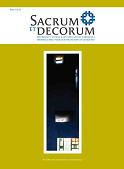
Keywords: mural paintin; religious art; church art; 19th c.; 20th c.; Polan; art criticism; exhibitions
For over 200 years now, that is, at least since the French Revolution, religious, or church art has been plagued with the notion of its inadequacy to the expectations of the faithful and the resulting need for the “eternal resurrections of sacred art” (les éternelles résurrections de l’art sacré). The present paper looks at such attempts undertaken on the Polish ground roughly in the first thirty years of the 20th century, particularly in the period spanning the two decades between two major exhibitions of church art, held in Cracow in 1911 and in Katowice in 1931, and church mural paintings as the form of art that was famously flourishing on the Polish lands in the 1890s, that is at the beginning of the period under discussion. The critical appraisal of the attempts at the renewal of church art, presented on numerous examples in the paper, based on contemporary press and literature, is aimed at showing the futility of such efforts, as the sphere of the sacred seems to defy any rationalised measures taken to “revive” or “renew” it.
More...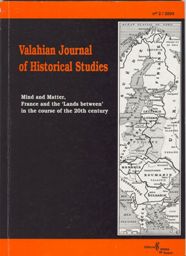
Keywords: Chechenya; Eurasia; national liberation; Islamism; Russia
This ample study approaches the changes occuring following the Soviet breakup in the Eurasian areas where national liberation and islamism started to occupied the stage that far occupied by Soviet communism.
More...OUVRAGE PRÉCIEUX ILLUSTRANT LES RELATIONS BULGARO-RUSSES SOUS LE GOUVERNEMENT DE STAMBOLOV (Попов, Радослав . Русия срещу Стамболов или Стамболов срещу Русия . София 2000); WHAT IS IT TO BE A WOMAN AND A MAN IN THE BALKANS (Gender Relations in South Eastern Europe: Historical Perspectives on Womanhood and Manhood in 1 9 th and 20 th Century, Belgrade–Graz 2002); Crampton, R. J. THE BALKANS SINCE THE SECOND WORLD WAR. London–New York, Longman, 2002; Първанова , Зорка . МЕЖДУ НЕОСЪЩЕСТВЕНИЯ ХЮРИЕТ И НЕИЗБЕЖНАТА ВОЙНА . София 2002; Стоилова Тамара . ТРЕТИЯТ РИМ . МИРНИТЕ РЕШЕНИЯ НА РУСКАТА ИМПЕРСКА ПОЛИТИКА В ЮГОИЗТОЧНА ЕВРОПА ПРЕЗ Х V ВЕК . София 2001; Мутафова , Красимира . СТАРОПРЕСТОЛНИЯТ ТЪРНОВ В ОСМАНОТУРСКАТА КНИЖНИНА Х V-Х V В . В . Търново 2002; Фотић , Александар . СВЕТА ГОРА И ХИЛАНДАР У ОСМАНСКОМ ЦАРСТВУ Х V-XV ВЕК . Београд 2000; Response to the review by Nikolai Aretov on the book “St Mount Athos and the Bulgarian New-martyrdom” (Sofia, 200 ) by Konstantinos Nichoritis*; THE BALKANS: Mapping Identities (8 TH - 2 ST C.) First International NEXUS Conference (Sofia, 18-20 October 2002); SECOND INTERNATIONAL TURKOLOGICAL SYMPOSIUM MOSTAR – 2002; ANNIVERSARY OF THE OUTBREAK OF THE BALKAN WAR; JUBILEE CONFERENCE ON THE EPARCHATE OF VARNA AND PRESLAV; A CONFERENCE ON ANTI-SEMITISM IN THE BALKANS Mont Athos et de Chilandar. Vesko Obreshkov
More...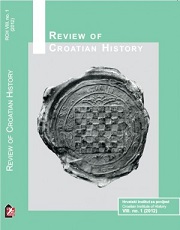
Keywords: Croatian nationalism; Ustaša movement; Ustaša principles; Independent State of Croatia; racial theories; racial legislation
In this article, which is written in a polemical tone, the author is making an eff ort to problematize a point of view from which the ideology of Croatian nationalism, the Ustasha movement and the Independent State of Croatia are even today being obsereved by a part of historiography. According to the author, the ideology of Croatian nationalism has not suff ered much vital modification since the mid-19th century until the end od the Second World War, rather it has kept itself occupied with justifying the right of Croats as a multiconfessional European nation to establish an independent state. Not just political manifestations, but also literary and cultural achievements of the nationalist ideology protagonists clearly speak in that direction. Th e geopolitical position of Croatian lands, as well as the infl uence of foreign powers have not made the achievement of such a right of Croatian people and the evolution of Croatian nationalist ideology possible. As a result, that same nationalist ideology sometimes takes on foreign ideological and political infl uences which are visible only on its surface and purely out of tactial reasons. Th e Ustasha movement, being one of the manifestations of Croatian nationalism, is also characterized by ideological eclecticism. Thus, diff erent and sometimes contrastive statements made by the leading persona of Ustasha movement regarding their attitude towards the ideologies dominating Europe in the time after the First World War are therefore understandable.
More...Le cheminement littéraire de Kušan compte quelques pages qui méritent d’être observées de plus près: l’une d’elle, la plus durable, mais inséparable de l’ensemble, s’ouvre avec La tour, chronique pour passer le temps, où il démasque et démystifie totalement, à sa façon ironique et sarcastique, toute la misère et le mensonge d’une époque idéologisée qui connaît aujourd’hui, avec ses acteurs, un implacable échec.
More...
Keywords: Czech art; 19th century art; illustrated magazines; illustration; reproduction
Illustrated magazines are specific phenomenon in the 19th century culture. Especially between the 1860s and 1890s they published an enormous number of pictorial materials of diverse content and quality. The text deals with Czech artists whose work significantly influenced the visual aspect as well as the content of the magazines. Some of the names mentioned are František Bohumír Zvěřina, Adolf Liebscher or Luděk Marold. The final part of the text is devoted to the relation of image and text that created very complex interrelations within the magazine structure.
More...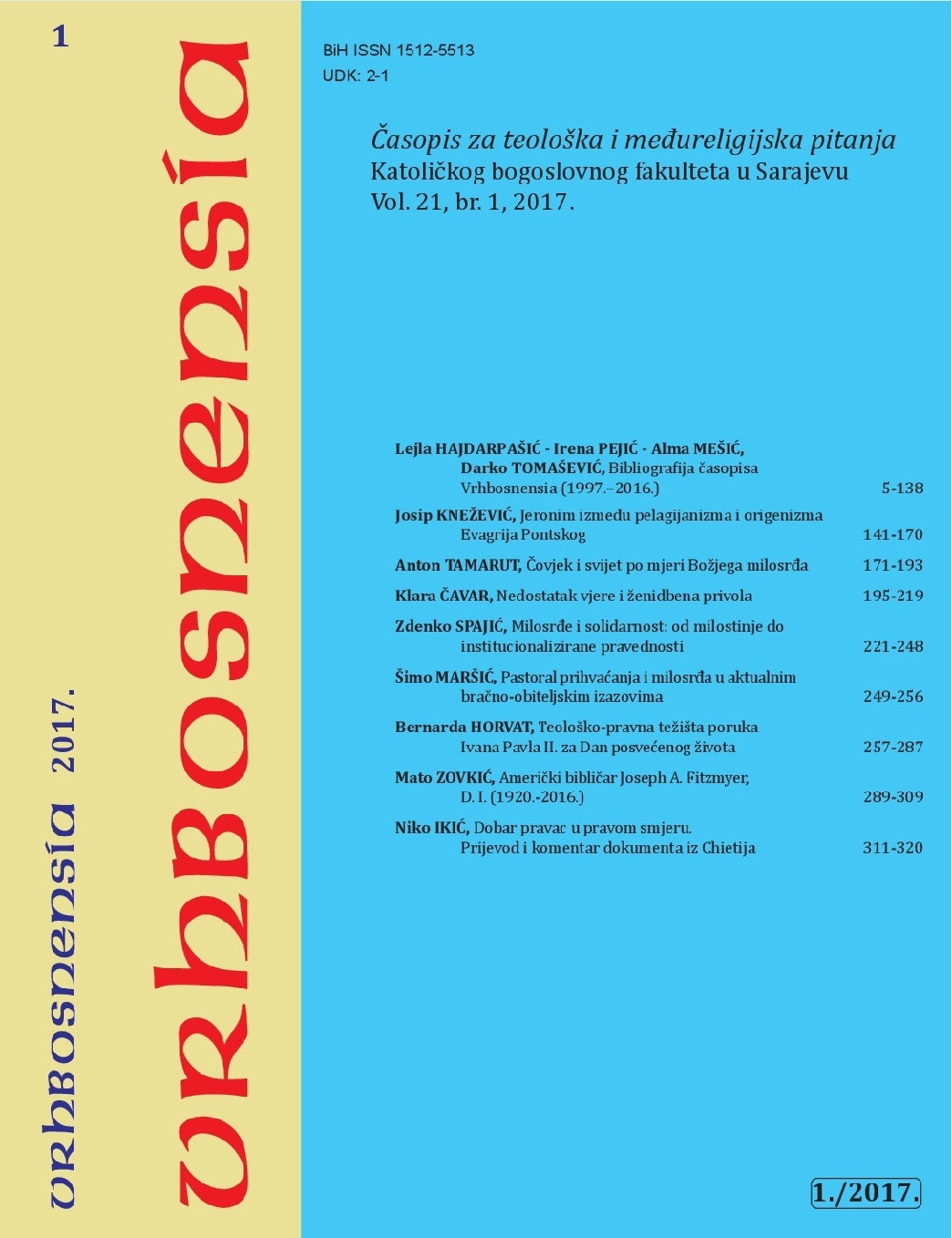
Keywords: Bibliography; Vrhbosnensia; 1997-2016;
Bibliography of the journal Vrhbosnensia (1997 - 2016)
More...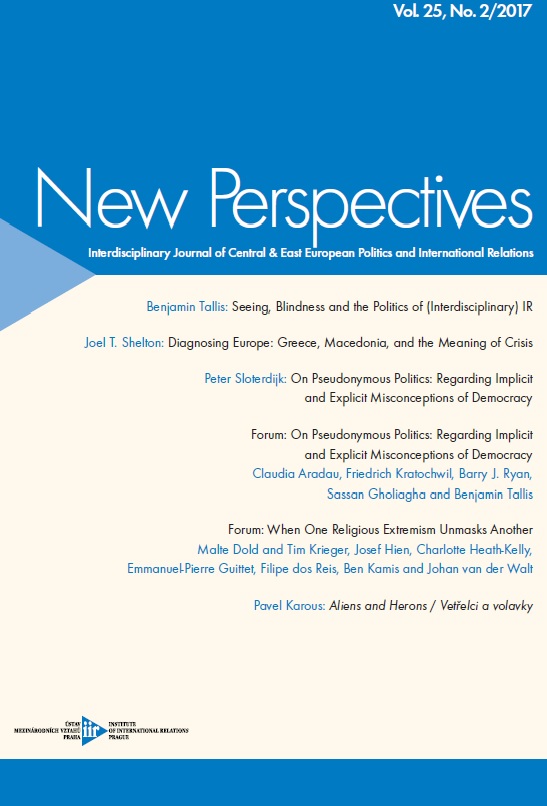
Keywords: ordoliberalism;neoliberalism;extremism;religion;European union;austerity;
Scholarly perspectives on Johan van der Walt's book 'When one religious extremism unmasks another'
More...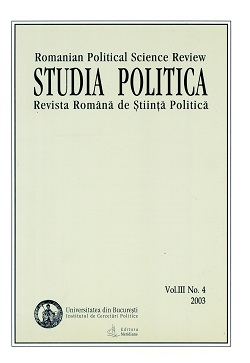
Keywords: Game Theory; international relations; the players;
In the past two decades, the surge of interest in modeling national security, regional alliances, international political economy and domestic politics - to name just a few - using the tools of Game Theory has met both with considerable optimism and with sobering pessimism from quantitative and qualitative political scientists everywhere. The present paper aims to herald a comprehensive systematization of game theoretic analysis, which has been typically confined to choice case studies, and to post-hoc analysis of world events. A better typology of the approaches and testable controls that have emerged within Game Theory may shed additional light on international relations and allow for its entrance into more respectable circles of world studies theorizing.
More...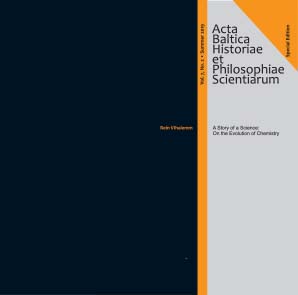
Keywords: evolution of chemistry; history of chemistry;
This book aims to observe the evolution of chemistry as a science. Its main goal, however, is not to give the reader a regular popular science account of the history of chemistry. The history of chemistry is only intended to serve as a background material for the analysis of problems which emerge at the intersection of the history, methodology and philosophy of science, presented in the format of popular science. These questions concern the nature of science, the preconditions for the emergence of science, its timeline, the rules and regularities of the development of science.
More...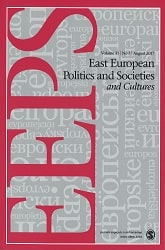
Keywords: power; dissent; post-totalitarianism; responsibility; technological civilization;
Inevitably, when revisiting a work I translated many years before, I am struck by things I might have done differently. My regrets run the gamut, from nuances of meaning missed or fudged, through omissions I can no longer properly explain, to outright, face-grabbing errors. This is true of all the novels, plays, and short stories I have translated. It is also true of The Power of the Powerless. Because I’m usually my own harshest critic, I’m never dismayed when people, as several of the contributors to this volume have done, point these lapses out. On the contrary they serve, in an odd way, to confirm the basic soundness of the work. [...]
More...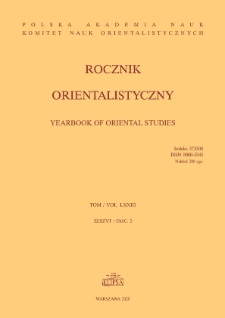
Keywords: Hussein Suhrawardy; Muslim League; Partition; Bengal; the politics of caste and communalism; Indian National Congress; Hindu Mahasabha; tebhaga; decolonization; Great Calcutta Riot
Up to the present day Suhrawardy remains a controversial figure in both parts of Bengal, with Hindus often seeing him as their fierce persecutor and Bangladeshi Muslims hailing him as their country’s forefather and preacher of communal unity. This article analyses his actions during the period of his Prime Ministership (1946-1947) looking for the sources of the above dichotomy. It argues that although Suhrawardy displayed a mild communal bias at times, circumstances made him inconsistent, being as he was trapped between right wing of Muslim League, the Hindu masses unwilling to trust him and (until the end of 1946) Congress ambitions to inherit the whole Raj. The need to act quickly due to Viceroy Mountbatten’s haste, as well as the PM’s lack of social skills were other factors contributing to failure of his last initiative – United Bengal Scheme – despite his genuine efforts towards Hindu-Muslim settlement and agrarian reforms.
More...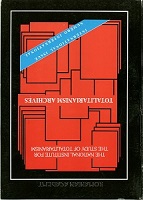
Keywords: Romania; economic history; political history; agriculture; collectivization; 1949-1962;
La chronologie de la collectivisation porte sur quatre niveaux d'action: l'espace de la décision politique reflétée dans le discours ou la directive; l'évolution des mécanismes juridiques et administratifs, ainsi que des institutions ayant dirigé le processus de la collectivisation; la dynamique des rapports entre les structures collectives et le fonds de la propriété privée dans l'agriculture; les réactions de défense des communautés paysannes devant les pressions de la collectivisation.
More...